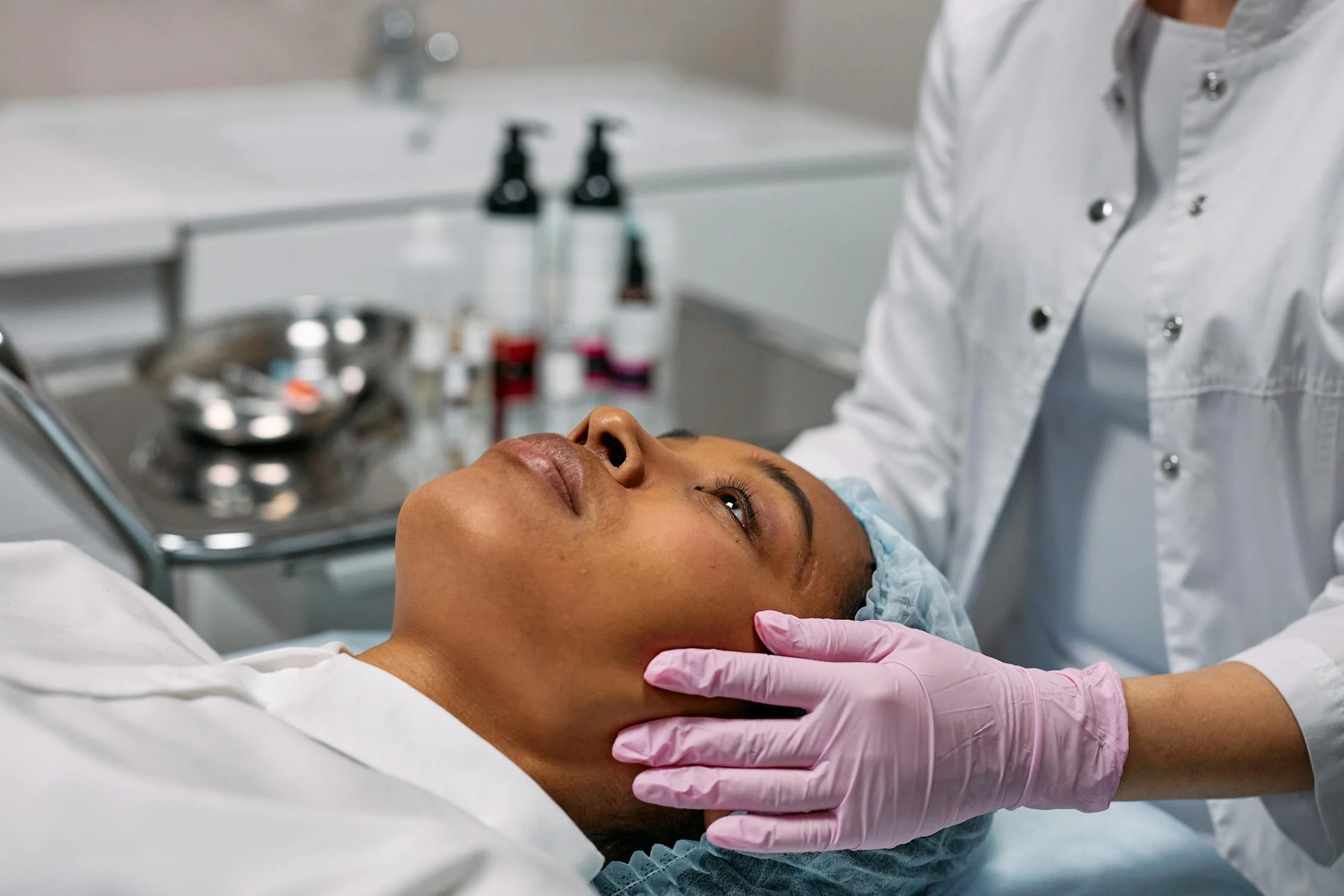
15 Jul Understanding the Psychological Benefits of Cosmetic Surgery
Cosmetic surgery is more than a nip-and-tuck; it’s a journey of self-discovery that can help people debunk the myth of inadequacy, shatter the shell of low self-esteem, and emerge stronger, bolder, and more radiant on the other side. Picture this: a transformed you, radiating confidence and self-acceptance. But can cosmetic surgery really deliver on this promise? We’ll get to the bottom of the psychological advantages that make it all possible.
Enhanced Self-Esteem and Body Image

Photo by cottonbro studio
One of the most significant psychological benefits of cosmetic surgery is the enhancement of self-esteem and body image. We’ve all got our own physical quirks that can make us feel, well, less than confident. Whether you’re looking to revitalize your facial features or refine your neck and jawline, surgical solutions like rhinoplasty, neck lifts, and facelifts can reshape your confidence from the inside out. Exploring various surgical solutions can bring profound changes, such as enhanced facial symmetry or a more defined neckline, which in turn can boost your self-esteem immensely. Think about it: when you feel good about how you look, your entire outlook changes. That’s exactly what happens for many people after surgery, as the evidence clearly shows. With a stronger sense of self, social interactions become more enjoyable, professional opportunities abound, and life takes on a sunny disposition.
Alleviation of Psychological Distress
Cosmetic surgery can also alleviate psychological distress associated with body dissatisfaction. Individuals who have long been unhappy with specific physical attributes may experience anxiety, depression, and other emotional challenges. Whether it’s a nose that’s always bothered you or sagging skin that’s a reminder of aging, cosmetic surgery can bring welcomed relief. By addressing these aesthetic concerns, individuals can reboot their mental outlook, fostering a deeper connection with their appearance and, ultimately, themselves. Sometimes, a surgical procedure can be the missing piece to living life unapologetically. Breast reduction surgery, for instance, can erase the tiredness and self-consciousness that holds you back, while a facelift can resurface your natural charm, inviting you to take center stage in social gatherings.
Corrective and Reconstructive Benefits
For those struggling with physical abnormalities, corrective cosmetic procedures offer more than just a visible fix – they bring an empowering sense of self-acceptance. Rhinoplasty, for instance, not only enhances facial harmony but also reduces the emotional distress caused by a misshapen or asymmetrical nose. After a mastectomy, breast reconstruction can be a vital step in healing – not just physically, but emotionally as well. It helps women regain their confidence and feel like themselves again. What’s at stake with these procedures is more than just emotional calm – it’s about building a stronger, more resilient sense of self that can weather life’s ups and downs.
For those struggling to come to terms with their new reflection after an accident, trauma, or illness, restorative cosmetic surgery offers a ray of hope. By addressing physical deformities, it empowers individuals to recapture their sense of identity and confidence. With the help of scar revision and skin grafting, imperfections on the skin can give us a fresh start and liberate us from self-conscious vulnerability. For people who’ve suffered physical trauma, regaining confidence often starts with reclaiming their appearance. When that happens, the repercussions are profound: an empowered, emotionally resilient individual begins to emerge.
Managing Expectations and Psychological Readiness
Having realistic expectations is vital for individuals considering cosmetic surgery. Cosmetic changes can pump up your confidence, but they can’t replace the internal healing process that gets to the heart of emotional issues. Like trainers prepping athletes for a big game, surgeons coach patients on what to anticipate from a procedure – from potential dangers to realistic outcomes – so they’re better equipped to face the results head-on. Knowing what lies ahead after surgery lets us gird ourselves for the challenges and take comfort in the fact that any temporary setbacks are just that – temporary – allowing us to maintain a sense of emotional balance.
With plastic surgery on the table, a thorough self-examination is needed in order to pinpoint your true motivations and desires. As we assess psychological risk factors, body dysmorphic disorder and unreasonably high expectations about one’s appearance take center stage – crucial flags that warrant our attention. Imagine undergoing surgery after surgery, yet still feeling frustrated with your appearance – that’s the heartbreaking reality for many individuals with body dysmorphic disorder, emphasizing the vital role of counseling in breaking this cycle. With the guidance of a mental health professional, people can make confident decisions that prioritize their psychological health.
Post-Surgery Emotional Support
Emotional and psychological support after cosmetic surgery is essential for optimal mental well-being. The road to healing is rarely a straight shot – it’s a winding path of ups and downs that can test your emotional limits. Many people find it particularly helpful to surround themselves with therapists, support groups, and aftercare programs that offer reliable guidance and support throughout the process. Getting through the emotional ups and downs after surgery can be tough, but support systems are here to help. They’ll guide you through expectation setting, coping with body image changes, and help you find a sense of satisfaction with your cosmetic surgery journey.
Conclusion
There’s more to cosmetic surgery than a youthful glow – it often orchestrates a profound makeover of one’s inner self, fueled by renewed optimism and empowerment. Cosmetic enhancements can transform more than just our looks – they can quiet that critical inner voice, lift our mood, and even quell those nagging feelings of insecurity that hold us back. Don’t set yourself up for disappointment – approach cosmetic surgery with a level head and realistic goals. This means being honest about your motivations, getting evaluated psychologically, and building a strong support network for post-op. Pay attention to your mental health, and you’ll find that the decisions you make will naturally promote both physical and emotional wellness. Cosmetically, a surge in confidence can come with subtle tweaks or dramatic changes. However, knowing how these alterations will affect your mental state is crucial for a truly satisfying result.
Call to Action
If you are considering cosmetic surgery, take the time to research, consult with qualified professionals, and reflect on your motivations and expectations. By doing so, you can make informed decisions that align with your holistic well-being, ensuring a positive and fulfilling experience. Seek support, embrace the journey, and take the first step towards a more confident and contented you.
The information on MedicalResearch.com is provided for educational purposes only, and is in no way intended to diagnose, endorse, cure, or treat any medical or other condition.
Some links may be sponsored. Products and services are not endorsed.
Always seek the advice of your physician or other qualified health and ask your doctor any questions you may have regarding a medical condition. In addition to all other limitations and disclaimers in this agreement, service provider and its third party providers disclaim any liability or loss in connection with the content provided on this website.
Last Updated on July 24, 2024 by Marie Benz MD FAAD
